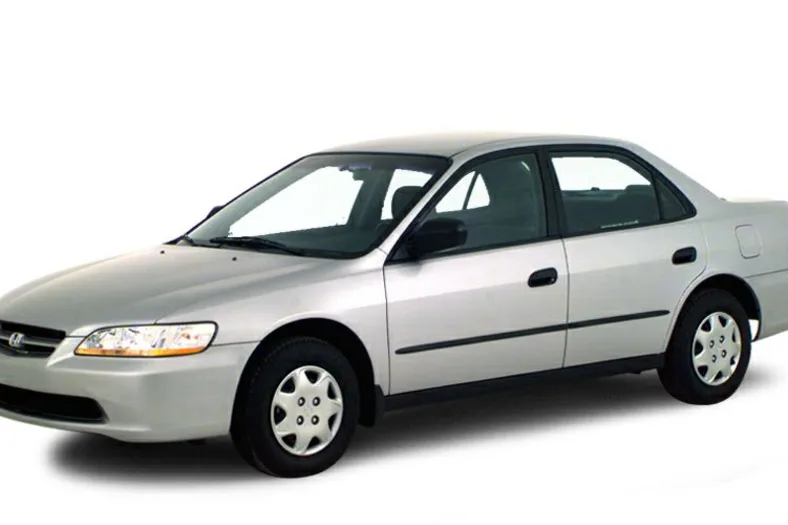The average cost to replace an alternator in a Honda Accord is between $571 and $779. Labor costs are estimated to be between $100 and $126, and parts are priced between $471 and $653. These prices do not take into account taxes and fees, nor do they take into account your specific model year or location.
How Long Do Honda Alternators Last?
Alternators typically last between 80,000 and 150,000 miles, but there are a few things that can cause them to wear out sooner than expected, such as driving conditions and power drain on the alternator.
| It is one of the most curious topics of users: | 2000 honda accord starter |
| After that, the second most searched topic is: | 1999 honda accord alternator replacement |
| And with this, another curious topic: | Best alternator for honda accord |
How Much Does It Cost To Replace An Alternator On A 2001 Honda Accord?
Alternator for the 2001 Honda Accord for more than $114.99
Note: In addition to the information we have provided in our article on 2000 honda accord alternator autozone, you can access the wikipedia link Here, which is another important source on the subject.
Is The Alternator Belt The Same As The Power Steering Belt?
Your engine has two serpentine belts, and the belts that connect the power steering to the air conditioning compressor are not the same size as the belts that connect the alternator.
Does The Alternator Belt Affect Power Steering?
Once your belt breaks, it can cause additional damage to the important systems that depend on it, like the alternator, water pump, power steering, and air conditioning.
How Many Belts Do A Honda Accord Have?
There are up to three belts on an early Honda: one for the power steering, one for the alternator, and one for the air conditioning if it has one.
What Belt Gets Replaced With Alternator?
Your alternator, power steering pump, air conditioner, and other engine parts are powered by the serpentine belt.
How Much Does It Cost To Replace An Alternator Belt On A Honda Accord?
The average price for replacing the serpentine belt in a Honda Accord is between $95 and $115, with labor costs estimated to be between $47 and $59 and parts priced between $48 and $57. These prices do not include taxes and fees and do not take into account your specific model year or location.
What Are The Symptoms Of A Broken Alternator Belt?
Symptoms of a loose alternator belt include: i The battery warning light comes on; i The car lights begin to flicker or appear dimmer than usual; i The engine compartment makes a loud chirping or squealing sound; i The vehicle frequently stalls; i The battery in the car is dead.16 Eyl 2021
Which Belt Is The Alternator Belt?
According to Firestone, a serpentine belt is a single, lengthy rubber belt that runs along the engine of your vehicle and supplies power to numerous essential components, including the alternator, power steering pump, air conditioning, and occasionally the water pump.
Is Alternator Belt And Serpentine Belt The Same?
The serpentine belt, which is also referred to as an alternator belt, a fan belt, or an accessory drive belt, is spun by the engine crankshaft and, in turn, spins the accessories or “drives” them. While earlier automobiles relied on a number of drive belts, current automobiles typically only use one, the serpentine belt.
Does NAPA Replace Alternator?
Your charging system, including the battery, can be tested by certified technicians at NAPA AUTOPRO, who can also diagnose problems with the belt or replace the alternator.
Who Makes NAPA Alternator?
Advanced and NAPA both have Denso, which I believe is the original equipment manufacturer; however, I am unsure whether OEM really matters when a vehicle is remanufactured.
Does NAPA Check Alternator?
Alternators are visually inspected, bench-tested, and if necessary, component tested during NAPA warranty inspections.
How Long Is NAPA Alternator Warranty?
BBB Industries guarantees that your NAPA NEW Alternator and/or Starter will be free of defects in workmanship and materials for the duration of the warranty, which is limited and non-transferable.
What Would Cause The Alternator To Not Charge The Battery?
If the diodes burn out, your alternator won’t be able to charge the battery. They will die from overheating, bad wiring, or overloading the electrical supply. Most of the time, only one or two diodes will fail, but the others will keep changing how power flows. This problem will get worse when you load your car.
Can A Fuse Cause Alternator Not To Charge?
Dead Battery: The alternator won’t be able to charge the battery if the fuse or fusible link blows, and the battery won’t have enough power to start the car or keep it running.
Why Is My Honda Accord Battery Not Holding Charge?
This can happen if your alternator or belt is bad or if the charging system has too much resistance. Another reason your Honda Accord battery might be dying is that it is old and has reached its end, which means it will no longer hold a charge.
How Much Does It Cost To Replace A Honda Alternator?
Alternator replacement takes about two hours, which is about the same amount of time as fixing a driveline and about the same amount of time as fixing a clutch. Parts, including a new belt, can cost anywhere from $290 to $600, and labor can cost anywhere from $85 to $800, depending on where you get your car serviced.
What Is The Labor Cost To Replace An Alternator?
How much does it cost to replace an alternator with labor? The typical price for replacing an alternator in a car is about $400, but if you go to a dealership, you might pay at least $500.
How Many Hours Does It Take To Replace An Alternator?
The exact amount of time required to replace the alternator will depend on the make and model of your vehicle, but typically, one to two hours is sufficient.
Can I Replace My Own Alternator?
One of the easiest repairs you can make at home with a few tools and about an hour is replacing an alternator, which can cost several hundred dollars at the local repair shop. However, you can do it yourself and keep the money in your pocket.
What Are The 3 Wires From My Alternator?
The ignition input wire is connected to the engine; the energy detection cable monitors voltage and transmits it to the converter; and the energy wire links the alternator and the engine. These are the three key wires that make up the loop: a positive wire for the battery, a sensing wire for voltage, and an igniting wire.
What Are The 2 Wires On An Alternator?
The alternator also shows a connection with the “battery charging wire,” which is a small cable that connects to the respective battery terminals.
Which Wire Is Positive On Alternator?
Find the position of terminal B, also known as “Bat” or “Pos,” which is the alternator’s positive terminal and connects with a red wire. Locate terminal F, also known as “Neg” or “field,” which is the alternator’s ground terminal and connects with a black wire.
What Are The 1 Wires On An Alternator?
The idea behind a one-wire alternator is, as you might expect, that there is only one wire that connects the alternator to the battery. Because the voltage regulator is inside the alternator, no other wires need to be connected to your electrical system.
How Do I Know If My Honda Accord Alternator Is Bad?
If your car won’t start, your devices won’t charge, there is a burning rubber smell under the hood, your headlights or interior lights look dim, and your battery warning dashboard light is on, you should take it to a Billings service center for an inspection.
How Long Should A Honda Alternator Last?
Alternators typically last between 80,000 and 150,000 miles, or seven years. However, there are a few things that can accelerate the wear on your alternator.
What Is The Output Voltage Of An Alternator In A Honda Accord?
Together with the alternator, the voltage regulator ensures that the battery stays charged and that the electrical output stays within 13.5 to 14.5 volts.

